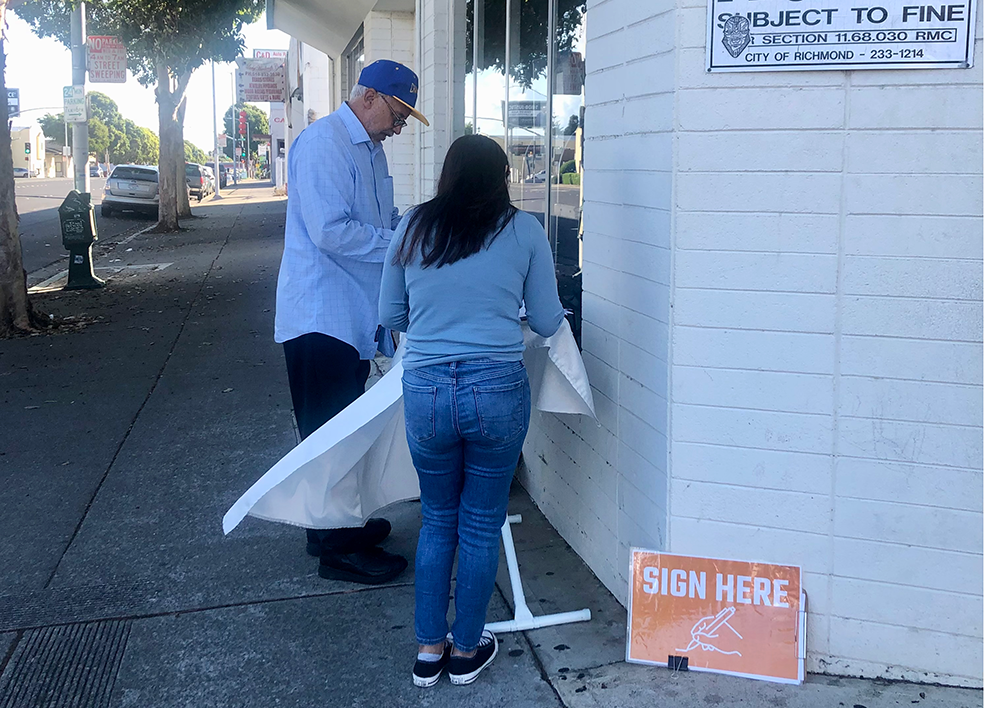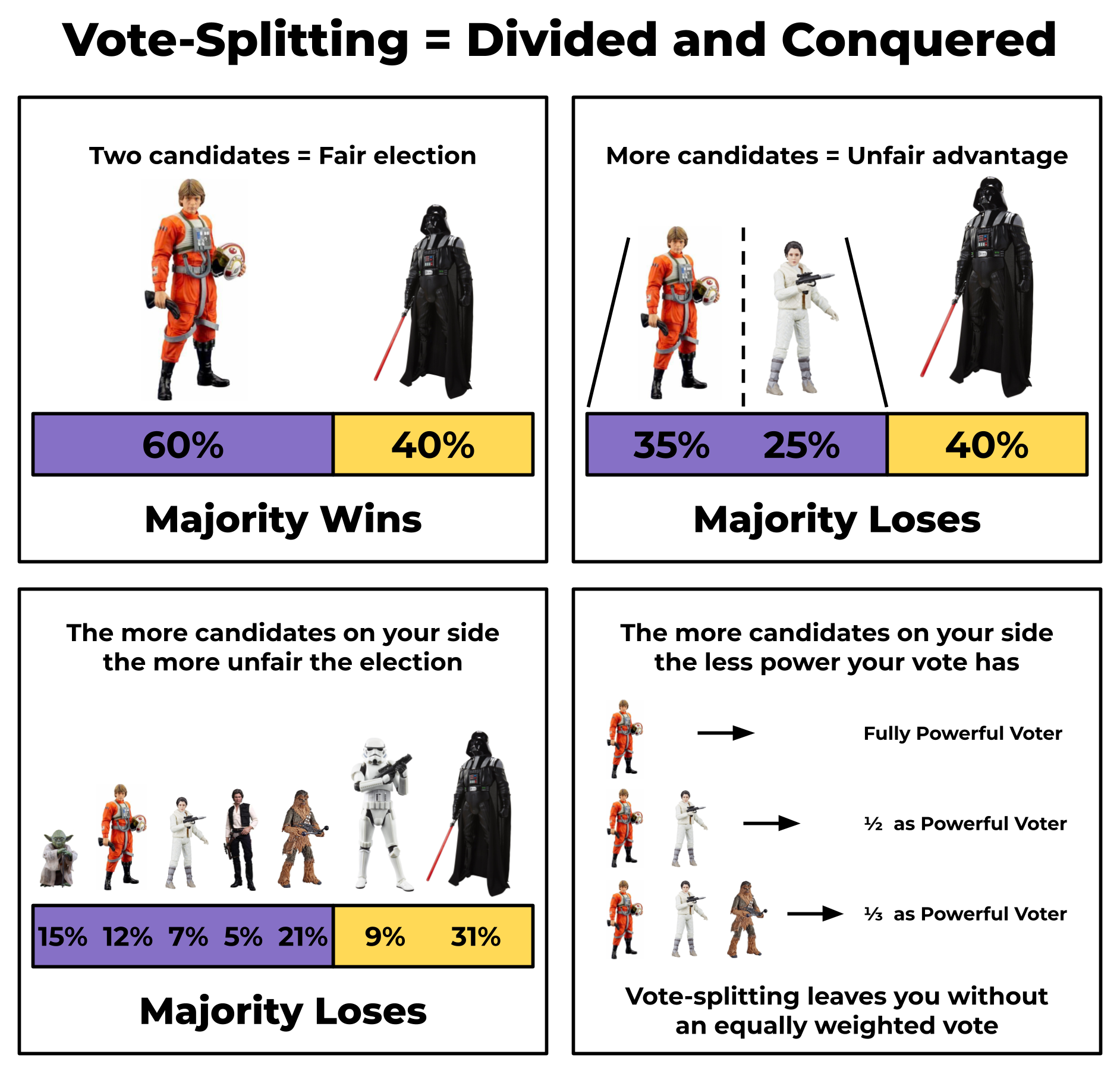

Fresh off the Richmond Election Reform Act petition certification, the Richmond City Council will now consider placing its own election reform measure on the November ballot.
Voting reform organization California Ranked Choice Voting will present a report on instant runoff voting to the council at the April 30 meeting.
Cal RCV says ranked-choice voting leads to a more effective and representative local, state, and federal government.
Staff says Richmond’s voter turnout history and unique political situation require a new voting system reflecting its electorate. Richmond uses a plurality voting system to elect city leaders, which election experts have concluded is not the best way to achieve a truly representative democracy.
“In almost every plurality election, many voters are represented by someone who they did not help elect. This may lead to a lack of confidence and less faith in elected leadership,” the report states.
This voting system is susceptible to the spoiler effect, where a losing candidate can change the winner by siphoning off votes or “splitting the vote.”
Staff says plurality voting encourages people to vote for a candidate they think can win even if it is not their favorite candidate in the race, and makes it difficult for new candidates to run for office successfully.
The report says the Richmond Election Reform Act by a political action committee called Richmond Votes Matters would worsen representation. The measure would increase election costs for the city and candidates or allow primary voters to select winners without a runoff.
 Grandview IndependentSoren Hemmila
Grandview IndependentSoren Hemmila
Incumbents running for re-election would also be focused on campaigning, meaning less attention would be paid to their constituents and city business.
As of January 31, 2024, the last campaign disclosure available, Richmond Votes Matters, has raised $171,000 from several union PACs. This includes $25,000 from the International Brotherhood of Boilermakers, Iron Ship Builders, Blacksmiths, Forgers and Helpers Local 549, $20,000 from the Richmond Police Officers Association, $25,000 from Steamfitters Local 342, and $25,000 from Plumbers and Steamfitters Local 159. Richmond Police Officers Association President Benjamin Therriault is listed as a principal officer of Richmond Votes Matters on campaign disclosure forms.
The measure’s leading proponent, Don Gosney, says a campaign strategy has developed to split the votes in Richmond.

Gosney pointed to Councilmember Gayle McLaughlin’s 2006 winning election for mayor and Mayor Eduardo Martinez’s successful election in 2022.
“They got elected with less than 39 percent of the voters. That is not exactly a mandate of the people,” Gosney said.
Gosney isn't a fan of rank-choice voting calling it the least democratic process he’s ever seen.
“The example here is the first time it was used in Oakland. State Senate Pro Tem, a longtime senator and assembly member, Don Perata, was running. He received far more votes than anyone else. But because so many people were running, he didn’t get 50 percent. With rank choice, he lost,” Gosney said.
The staff report suggests adopting an instant runoff voting system to avoid the extra election costs and the low turnout issues of a primary. Neighboring cities, including Albany, Oakland, and San Francisco, have adopted IRV.
Under IRV, there is only one municipal election in November. Voters rank the candidates in order of preference instead of picking just one candidate. If a candidate gets more than 50 percent of the votes, that candidate wins.
If no candidate gets more than 50 percent, an instant runoff happens. Using election software, whoever is in last place is automatically eliminated, and those voters’ second choice is counted.
If a voter’s first choice gets eliminated, the vote goes to the voter’s second-choice candidate. If there is still no candidate with more than 50 percent, the process is repeated until someone gets a majority of the votes.
According to Ballotpedia, only one can be approved by voters when measures with conflicting provisions compete. If both competing measures receive the required number of votes for approval, the measure with the most votes supersedes the other.
In some instances, neither of the two competing measures receives the required number of votes, defeating both measures.
Help keep our content free for all!
Click to become a Grandview Supporter here. Grandview is an independent, journalist-run publication exclusively covering Richmond, CA. Copyright © 2024 Grandview Independent, all rights reserved.
